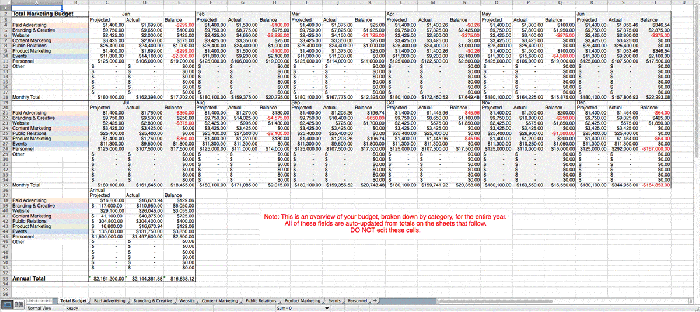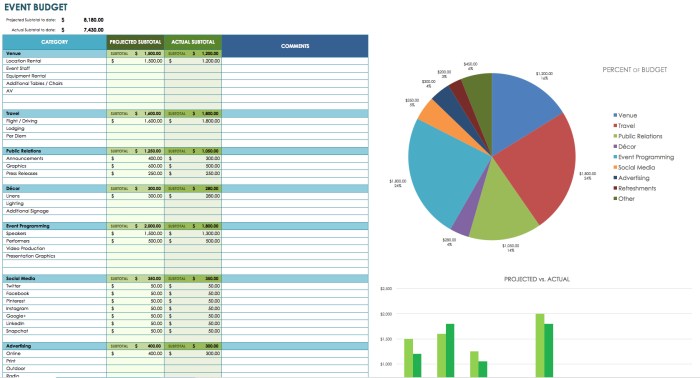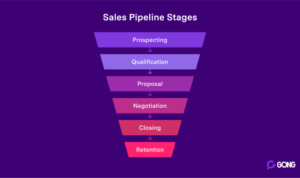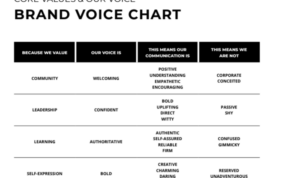Kicking off with Developing a Marketing Budget, this opening paragraph is designed to captivate and engage the readers with a fresh perspective. As businesses strive for success, having a well-thought-out marketing budget becomes a cornerstone of their strategy. This guide dives deep into the importance, factors to consider, strategies for allocation, and tools/resources needed to navigate the world of marketing budgets effectively.
Importance of Developing a Marketing Budget

Having a well-thought-out marketing budget is essential for businesses to effectively plan and execute their marketing strategies. It serves as a roadmap for allocating resources, tracking expenses, and measuring the success of marketing campaigns.
A marketing budget has a significant impact on the overall success of a business. By setting clear financial boundaries and goals, companies can make informed decisions on where to invest their money to achieve the best return on investment. Without a budget, businesses may overspend on ineffective marketing tactics or miss out on opportunities to reach their target audience.
One example of how a marketing budget can help allocate resources effectively is by prioritizing high-impact marketing channels. By analyzing past performance and industry trends, businesses can determine which platforms or strategies yield the best results and allocate more budget towards those areas. This data-driven approach ensures that marketing efforts are focused on activities that drive growth and generate revenue.
Factors to Consider When Developing a Marketing Budget
When creating a marketing budget, businesses need to consider various key factors to ensure the allocation of resources is effective and aligned with their goals.
Role of Market Research in Budget Allocation
Market research plays a crucial role in determining how businesses allocate their marketing budget. By conducting thorough research, companies can gain valuable insights into their target audience, competitors, and industry trends. This information helps in identifying the most effective marketing channels and strategies to reach their target customers. Allocating budget based on data-driven insights from market research can lead to higher ROI and overall success of marketing campaigns.
Significance of Setting Clear Goals and Objectives
Setting clear goals and objectives is essential for effective budget planning in marketing. Without clear direction, it is challenging to determine where to allocate resources and how to measure the success of marketing efforts. By defining specific goals such as increasing brand awareness, generating leads, or driving sales, businesses can better prioritize their budget allocation to achieve desired outcomes. Clear goals also help in evaluating the performance of marketing initiatives and making informed decisions for future budget planning.
Strategies for Allocating a Marketing Budget

When it comes to allocating a marketing budget, there are several strategies that businesses can use to make the most out of their resources. It is essential to distribute funds effectively across various marketing channels to achieve optimal results. Balancing short-term and long-term investments is crucial for sustained growth, and prioritizing budget allocation based on business goals can lead to better outcomes.
Allocate Funds Across Various Marketing Channels, Developing a Marketing Budget
- Utilize a multi-channel approach to reach a wider audience and maximize exposure.
- Consider the performance of each channel and allocate funds based on ROI (Return on Investment).
- Experiment with different channels to identify the most effective ones for your target market.
Balance Short-term and Long-term Investments
- Allocate a portion of the budget for immediate results, such as PPC (Pay-Per-Click) advertising or promotions.
- Invest in long-term strategies like (Search Engine Optimization) and content marketing for sustained growth over time.
- Find the right mix of short-term tactics and long-term investments to achieve a balanced approach.
Priority Budget Allocation Based on Business Goals
- Align budget allocation with specific business objectives, such as increasing brand awareness or driving sales.
- Identify key performance indicators (KPIs) to measure the success of each marketing initiative.
- Adjust budget allocation based on the performance of different strategies to optimize results.
Tools and Resources for Managing a Marketing Budget: Developing A Marketing Budget
In today’s digital age, there are various software tools and resources available to help businesses effectively manage and track their marketing expenses. These tools not only streamline the budgeting process but also provide valuable insights for optimizing marketing strategies.
Software Tools for Managing Marketing Expenses
- 1. QuickBooks: A popular accounting software that allows businesses to track expenses, create budgets, and generate reports to monitor marketing spending.
- 2. Trello: A project management tool that can be used to create marketing budgets, assign tasks, and track progress in real-time.
- 3. HubSpot: An all-in-one marketing platform with budgeting features that help businesses plan, execute, and analyze marketing campaigns.
Benefits of Using Budgeting Templates
- 1. Efficiency: Budgeting templates provide a structured format for organizing marketing expenses, saving time and effort in the planning process.
- 2. Accuracy: Templates ensure that all expenses are accounted for, reducing the risk of overspending or missing important costs.
- 3. Consistency: Using templates helps maintain a consistent approach to budgeting across different marketing campaigns and periods.
Tips for Regularly Reviewing and Adjusting the Marketing Budget
- Monitor Performance: Regularly review key performance indicators (KPIs) to assess the effectiveness of marketing efforts and adjust the budget accordingly.
- Stay Flexible: Be prepared to adapt the budget in response to changing market conditions, consumer behavior, or unexpected events.
- Seek Feedback: Gather input from the marketing team, stakeholders, and customers to identify areas for improvement and reallocate resources as needed.





